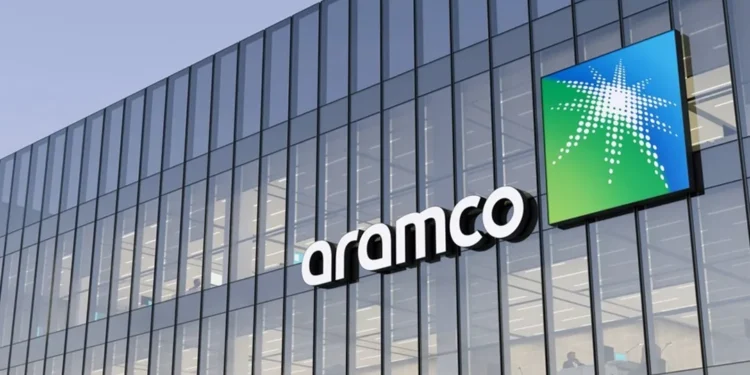Saudi Arabia’s oil giant Aramco has hit a major milestone in its digital transformation journey, doubling its technology returns to $4 billion in 2024 as artificial intelligence becomes the driving force behind its operational success.
The state-owned energy company achieved this breakthrough by embedding AI across all its divisions, marking a dramatic shift from traditional oil operations to what CEO Amin Nasser calls “a technology company delivering energy.” This represents a 100% increase from the $2 billion in technology returns the company realized in 2023.
Nasser revealed that Aramco has trained over 6,000 AI-enabled professionals and hundreds of AI specialists to harness nine decades of operational data. The company’s AI applications now span cost reduction, productivity enhancement, emissions reduction, water production optimization, and improved pumping efficiency across its global operations.
AI becomes core to operations
Aramco’s transformation centers around METABRAIN, the world’s largest industrial large language model. This trillion-parameter AI system was trained on seven trillion tokens of data, including 90 years of operational information. The model now powers decision-making across the entire enterprise, from exploration to refining operations.
The success has allowed Aramco to maintain its extraction costs at just $3 per barrel – unchanged for the past two decades despite field maturity, increased water production, and global inflation. This cost efficiency demonstrates how AI can deliver tangible business value even in traditional industries.
“We have developed more than 300 AI use cases,” Nasser explained. “Our focus on digital transformation has positioned us to leverage the power of data, technology, and people to create new opportunities.”
Major tech partnerships fuel growth
The AI strategy gains additional momentum through Aramco’s recent $90 billion in partnerships with major US technology companies. These deals include collaborations with Nvidia, Amazon Web Services, Qualcomm, and Microsoft, spanning AI development, cloud computing, and industrial automation.
The Nvidia partnership focuses on establishing AI computing infrastructure, including an AI Hub and Engineering and Robotics Center of Excellence. This collaboration provides Aramco access to the graphics processing units that power most machine learning applications.
Amazon Web Services signed a strategic framework agreement targeting digital transformation and lower-carbon initiatives through cloud computing capabilities. Meanwhile, Qualcomm works with Aramco Digital on 5G industrial network applications and intelligent edge devices with on-device AI capabilities.
World’s first industrial distributed cloud
In February 2025, Aramco Digital partnered with Microsoft and edge computing pioneer Armada to deploy the world’s first industrial distributed cloud. This breakthrough combines cloud scalability with edge resilience, enabling real-time AI processing at remote industrial sites.
The distributed cloud infrastructure supports Aramco’s expanded data center computing power and 1,500 petabytes of storage capacity. This technological foundation enables the company to process and analyze vast amounts of operational data in real-time.
Financial performance remains strong
Despite the significant technology investments, Aramco maintained strong financial performance. The company reported net income of $106.2 billion in 2024, down from $121.3 billion in 2023 but still demonstrating robust profitability.
The technology returns of $4 billion now represent a meaningful contribution to overall performance, proving that AI investments can generate measurable returns even in capital-intensive industries like energy.
Broader implications for energy sector
Aramco’s success demonstrates how traditional energy companies can successfully integrate AI to improve operations and reduce costs. The company’s approach of training thousands of employees on AI capabilities while building robust technological infrastructure provides a blueprint for other energy companies.
The results also support Saudi Arabia’s broader economic diversification goals under Vision 2030, which aims to reduce the kingdom’s dependence on oil revenues by developing technology and knowledge-based industries.
Chief Technology Officer Ahmad Al-Khowaiter emphasized the transformative potential: “Aramco’s investment in AI technologies will completely transform the way we operate. Through partnerships we build and problems we solve together, Aramco can help Saudi Arabia become not only an energy leader, but an AI leader too.”
Looking ahead
Aramco continues expanding its AI capabilities through its venture capital arm, which allocated $100 million specifically for AI investments in 2024. The company also increased its venture fund capital from $3.5 billion to $7.5 billion, more than doubling its investment capacity.
The company’s LEAP program (Lead Digital Strategy, Enable Technology, Accelerate Innovation, and Promote A Digital Culture) provides the framework for continued digital transformation across all business units.
As energy companies worldwide face pressure to reduce emissions while maintaining profitability, Aramco’s successful AI integration offers a compelling example of how traditional industries can leverage technology to achieve both operational excellence and environmental goals.
The doubling of technology returns to $4 billion proves that AI can deliver substantial value when implemented strategically across enterprise operations, making Aramco’s approach a case study for digital transformation in heavy industry.













